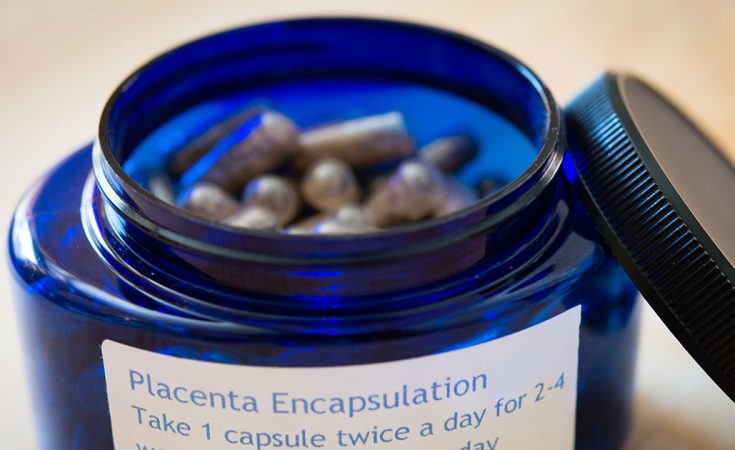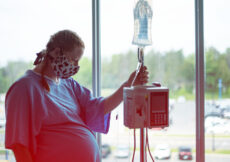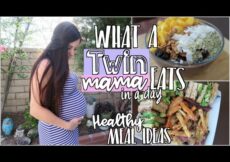
When it comes to giving birth and raising babies, I take a “you do you” mentality. Want to give birth in a tub surrounded by candles and incense? Awesome. Want an epidural as soon as the first contraction comes on? Great! Breastfeeding? Yay! Formula feeding? Fantastic.
However, I’m also all about birthing folks making decisions based on science and evidence. Personally, I was just about as crunchy as it comes when my children were babies. I gave birth naturally, breastfed them forever, baby wore them constantly, etc.
But when you are part of the “natural parenting” world, you soon learn that there are some practices that are, well, questionable—meaning that there is little evidence to back up the practice, and lots of myths surrounding the supposed benefits.
One of those practices is the act of consuming one’s placenta. I remember hearing about this when my kids were little. Consuming your placenta was supposed to boost your mood, give you more energy, and help you heal after birth. Yay!
The problem is, as I soon discovered, there is no evidence out there that consuming your placenta does any of these things. And in some cases, it actually poses serious medical risks.
How Are Placentas Consumed?
Now, most parents who are interested in consuming their placenta don’t just take a hunk of their placenta and start munching away. 70-80% of parents end up having their placenta dehydrated and encapsulated so that they can down their placenta in pill form.
Sounds sorta okay? At least you’re not having to bite right into the actual organ. The problem is that there is no regulation in terms of preparation practices when it comes to placenta encapsulation. Most encapsulation is done by birth workers and doulas. But there is no regulatory body overseeing this all and making sure the encapsulation is done in a sterile environment.
After all, we are talking about a living (errr, rotting) organ here that you are consuming. You want to make sure no bacteria is growing in it! This is one of the reasons that the CDC currently recommends against consuming your placenta, even after encapsulation.
“No standards exist for processing placenta for consumption,” they write. “The placenta encapsulation process does not per se eradicate infectious pathogens; thus, placenta capsule ingestion should be avoided.”
What Are The Purported Benefits?
If you google “encapsulating your placenta,” you will find lots of articles talking about the many benefits of this practice. You’ll even see articles about celebrities who swear by it.
Proponents of this practice say that consuming one’s placenta is the best way to ward off all the difficult things that happen to you after giving birth. Consumption means more energy, less postpartum depression, and a more robust milk supply. It’s supposed to increase your iron levels, and balance your hormones.
Basically, consuming your placenta is supposed to turn you into a strong, kick-ass, milky postpartum goddess. Sounds pretty cool, at least in theory.
Are There Any Verifiable Benefits?
The problem is that there is zero evidence that these pills do any of these things. All the actual scientific research that’s been done points to no benefits in consuming placentas.
For example, a study published in the Journal of Obstetrics and Gynaecology Canada looked at birthing parents who had histories of mood disorders in an attempt to measure whether consuming placenta might make them less depressed. The researchers also looked at whether the practice increased B12 levels or made breastfeeding more successful.
There is conclusion? The pills didn’t really do a damn thing in those departments. “These data provide no support for the idea that postpartum placentophagy improves mood, energy, lactation, or plasma vitamin B12 levels in women with a history of mood disorders,” the study concluded.
Another study (described as “randomized, double-blind, placebo-controlled”) found no improvement in iron levels among postpartum parents who consumed placenta pills. And yet another study found no benefits to placenta consumption in terms of maternal mood, baby bonding, or fatigue levels.
Are There Risks To Placenta Consumption?
Besides the lack of evidence for benefits, there are concerns about contamination of placenta pills, including one case, documented by the CDC, where a baby was hospitalized with group B strep (GBS) after her mother consumed contaminated placenta pills. Studies have also found heavy metals like lead and arsenic in placenta pills, which could pose a potential threat to a newborn baby.
All of this is why organizations like the American College of Obstetricians and Gynecologists (ACOG) and CDC strongly recommend against placenta consumption.
As ACOG puts it: “We found that there is no scientific evidence of any clinical benefit of placentophagy among humans, and no placental nutrients and hormones are retained in sufficient amounts after placenta encapsulation to be potentially helpful to the mother postpartum.”
“Moreover, because placentophagy is potentially harmful with no documented benefit, counseling women should be directive: physicians should discourage this practice,” ACOG adds.
Should I Encapsulate My Placenta?
Okay, so there are basically no benefits to consuming your placenta, and some potential serious risks. My sense is that after looking at the evidence (or lack thereof), most folks will decide not to encapsulate and consume their placenta.
But everyone is different, and you might decide that the risks are small enough for you, and you want to see for yourself if consuming your placenta is helpful. Maybe your friend has a really positive experience and that’s enough to convince you.
If that’s the case, please just make sure you discuss this with your doctor or midwife. Your doctor can help you understand what your specific risks are based on you and your baby’s health profile. They can also talk to you about red flags to look for should something go wrong.
Remember, it’s always better to be safe than sorry.


































